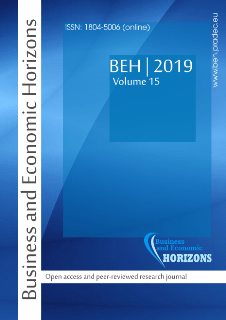The value of education in the labour market. How realistic are student expectations?
The value of education in the labour market. How realistic are student expectations?
Author(s): Alice Reissova, Jana SimsovaSubject(s): Economy, Socio-Economic Research
Published by: Prague Development Center
Keywords: Expected salary; offered salary; educational level; gender differences
Summary/Abstract: The study deals with student expectations associated with their placement in the labour market. In total, 437 students of the third and fourth grades of grammar schools and secondary schools teaching business and technical fields of study were interviewed as well as 257 potential employers of these students. The objective was to identify whether students appreciate the link between education and salary, whether salary expectations of students are realistic, and last but not least, whether such expectations differ in terms of gender. It was established that students appreciate the link between the level of education and the amount of gross salary, but only if they were employed. If they started their own business, they expect their income to be higher than if they were employed, regardless of their highest completed education. It was interesting to find out that students cannot see any links between future salary and what type of secondary school they study (technical schools, business schools or grammar schools). The key finding of the essay is the fact established using Friedman´s ANOVA and Kendall´s coefficient of concordance, i.e., that the salary expectations of students are higher than the realistic offer of employers, both in terms of salary after secondary school and that after university. There are statistically significant differences between boys and girls – boys expect a higher initial gross salary, both after secondary school and university. Salary expectations are the same concerning gender only in the event they would choose to start their own business.
Journal: Business and Economic Horizons
- Issue Year: 15/2019
- Issue No: 1
- Page Range: 20-36
- Page Count: 17
- Language: English

